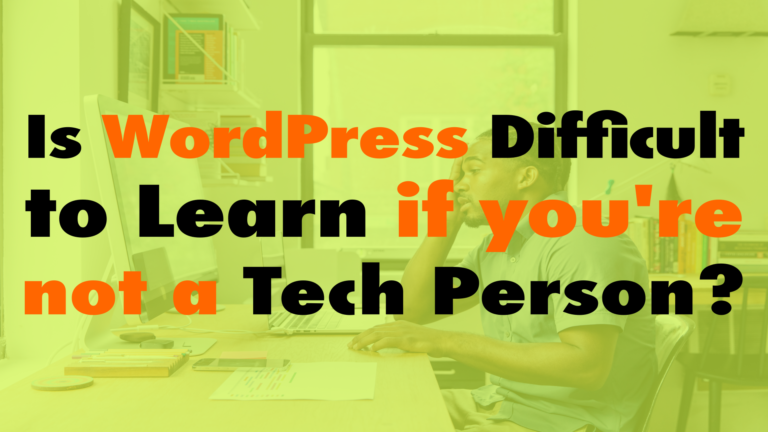How to Plan Out Blog Posts for Your Website
Read the full episode transcript below:
00:28 David Blackmon: Hey everybody, welcome to another episode of WP The Podcast, I’m David Blackmon
00:35 Tim Strifler: And i’m Tim Strifler
00:38 David Blackmon: Today in episode 746, 746. Wow, uh how to plan out blog posts for your website. Now when we came up with this topic, you know content is super super important. It is the way that you’re going to get people to your website, it’s the way for you to it can be a way for you to draw new clients, you know pull in pull in the pool. And there’s ways that you know you want to focus on how you want to plan your content stuff out. We’re going to give you, you know where you may want to focus but we’ll also give you some practical tips of things that you’ll want to do, when you’re planning out these blog posts. And uh to put them into your editorial calendar and stuff. So i’ll get us started off today. One thing that you want to do when you’re thinking about how to plan out blog posts is, you want to try to be think about being helpful. It’s not about i need to promote my services, i need to promote my products, i need to let everybody know that hey come by my stuff. That is not the way to attract visitors to your website, that’s gonna.. you know people that are interested in your products and they’re at a buying place they’re coming right to you to buy. They may do a little bit of research but they’re coming directly to you and stuff. If you want to build a relationship with your customer and nurture that relationship, so that maybe they’ll continue to buy from you. You really need to be serving up helpful content. So think about, you know topics and ideas around um, you know ways that you can be helpful to your avatar to your desired potential customers. So for example Tim and I have WordPress product companies. Um you know, we sell a lot of plugins, we sell a lot of child themes for WordPress and we’re not constantly promoting selling our plugins and child themes. However what we may be doing, is we may teach people how to you know build a basic WordPress website really quick. And that takes time well there may be a value for some of our products, my model is you know put the information out there, be as helpful as we can. Let them come to our website and then they’ll see “oh we sell they sell plugins and themes” and then they end up a lot of times buying and stuff. You could be a little bit more direct than that mine’s kind of a passive approach and stuff, but just when you’re thinking about how to plan out your content think about what type of content is going to be helpful to the end user. If that makes sense does that make sense Tim?
03:23 Tim Strifler: Absolutely. Yeah and one thing that you can also do is uh, i guess you can decide what order you want to go in, but you should pick epis or topics that people are actually searching for. Right you can make assumptions and guess but you want to validate based off of keyword research or you can skip right to keyword research and then formulate topic ideas from the research. But see what people are actually searching for in your niche, and what types of things you’re typing in, and that can inform the type of content that you produce again. When you are you know in the weeds with your business every day and you know your audience you know your customers really well, well you’re going to have a general idea of what are the things that people are struggling with, better than anyone. Because it’s your business your niche, right? However you still might have some false assumptions in certain areas that you can, you know figure out through keyword research or at the very least keyword research will tell you what people are what method they’re typing it. Right, or what exactly what words they’re using. So you might think that they’re typing yeah the way they’re typing it, in might be the same thing as what you’re thinking. But they’re typing it in slightly differently because they’re not as well versed in the niche and and everything as you are, you know the proper terminology. But it’s when you’re doing the the uh topic ideas you don’t want just to have the correct terminology you want the terminology that people are typing in so..
04:58 David Blackmon: Yeah and the good news about those types of tools and stuff is, they’re going to show you if you just kind of get close like Ahrefs for example, which is a tool Tim and i use you know, to do maybe do keyword research and analyze website data and stuff. A lot of times it’ll show you what exactly they’re searching for. So even if you don’t hit it perfectly, it might give you a list of 10 things that they’re searching for and i’ll give you this little tip. For me personally, when i’m looking at keyword research and stuff, anything over 500 searches a month is good. Because you don’t need 500 people to buy your stuff to be successful. Most businesses don’t need unless, you’re selling something for a nickel or you know or a dollar you know. Um you don’t really need to get all 500 people. So my my thought process has always been anything 500 and over is valuable for me to go after, to produce content for. Because you know, let’s just say i get 10 of those people you know. Well that’s 50 people. 50 new customers, who wouldn’t take 50 new customers? Let’s just say it’s 5, who wouldn’t take 25 customers? You know, what i mean so if you think about it in that way it’s going to give you a whole new perspective. And guess what? The competition is not going to be as high for those lower search four key phrases as opposed to oh i want to go for the one that’s getting a hundred thousand searches a month. Well guess what, everybody and their grandma is going after those and the competition’s a lot stiffer. So i like sitting in that you know, that range where it’s it’s easier to go after and target and stuff. And those key phrases as opposed to maybe the best key phrase for your business, so have that in your mindset when you’re planning your your content calendar out.
07:00 Tim Strifler: Yeah, and another tip for how to plan blog posts out for your website is to do things in bulk. Right, you don’t want to just sit down. Be like i need to write a blog post and then do all these things that we talked about, right? What you want to do, is you want to have a spreadsheet or some sort of tool Evernote, something where you keep all of your ideas. Right, all of your content ideas. And then you and then you basically once you figure out that “yes this is what i want to write out”, write about. Then you plan it out on a content calendar. And tomorrow’s episode we’re going to talk about what tools that you can actually use for a content calendar. But yeah, you want to basically have a list of ideas spend an hour two hours coming up with a bunch of ideas doing keyword research, figuring out what you want to write about, and then you have a whole list ready to go. So when you want to start writing you can start the process right away. You don’t have to figure out what do i need to write about, you already have an idea ready to go and plus once you get in the rhythm of doing that, it might take you, you know a couple minutes you know to get one one idea and then the ideas just start flowing. All of a sudden you have a list of 10 15 20 30 different uh article ideas that you could write on your blog, and you have a whole you know month two month three months planned out, uh just a couple hours of work.
08:15 David Blackmon: And one thing i’ll let you know is it’s not as overwhelming. Don’t think you need to put content out every day you know. What’s important is put out the answer to how much content should i put out, how much you know, how big should i make this content calendar and stuff. The answer is simple, it’s what can you do, how much can you put out if you can put out one good blog post a week then i can promise you it’s gonna be massive for your business. If you can put out more than that a week it’ll be it you know it’s gonna it’s like pouring gasoline on a fire you know. So if you put out one blog post a month which is fantastic, if you can put one blog post out a month that’s better than nothing. It will benefit your company but it’ll make the you know what happens is google starts to see you as an authority in your niche based on the content that you’re producing. So if you’re consistently producing really good content for end users in your niche, search engines will start to see you as an authority in that niche. So if you’re putting out one blog post a month it may take you two years to become an authority in that niche whereas if you put out a blog post once a week it may only take you 18 months to become an authority in that niche. So if you think about that there’s some incentive right there alone, because you want to be established as an authority in a niche. So anytime you produce content search engines shoot you to the top of the search results you know, because they know that the content that you’re putting out is going to be good. It’s going to be helpful it’s going to be educational it’s going to benefit the end user and stuff. So there’s so many reasons why you want to do blog content and how to do it, it’s not as overwhelming. Do it at whatever it is that you can, you know handle is the bottom line. Tim, did we miss anything?
10:22 Tim Strifler: No, i guess the last thing i would say is, is for planning out blog posts when you actually get to the point where you’re planning out a individual blog post, don’t just start writing. Uh you’ll save yourself a lot of time, if you plan out what you want to say before you actually start writing it. Um so then you have an idea of where you’re going. So for example the what i like to do and this isn’t the only way to do it i like to plan it out with an outline of what i want to cover. The you know most important points. And the reason why i like an outline, is that also helps me uh with hierarchy. So that i can use my h1s h2s and all of that which is really good for SEO. You don’t have to do outline you can do bolt points, you can do lists whatever. But it helps to have some sort of a high level plan of what you’re going to write before you start writing. And then it’ll make it go so much smoother and easier, because you already know what you’re going to be writing about. Next when you’re writing a paragraph and that can be really helpful to make everything flow together nicely.
11:29 David Blackmon: Absolutely. All right. Well, if we didn’t give you enough incentive to plan out a blog post for your website then skip tomorrow’s topic…. Actually come tune in to tomorrow’s topic because we’re going to talk about specific tools that we use when planning out our blog content calendar. Tim, till tomorrow we’ll see you then.
11:56 Tim Strifler: Take care, bye.

Did you Enjoy this Episode?
- Will you consider sharing it online? Just click one of the share buttons below!
- Will you leave us a review? 🙂
- Have a question, or a topic request? Let us know in the comments below!
Want to Connect with David & Tim?
- David:
- Tim:








